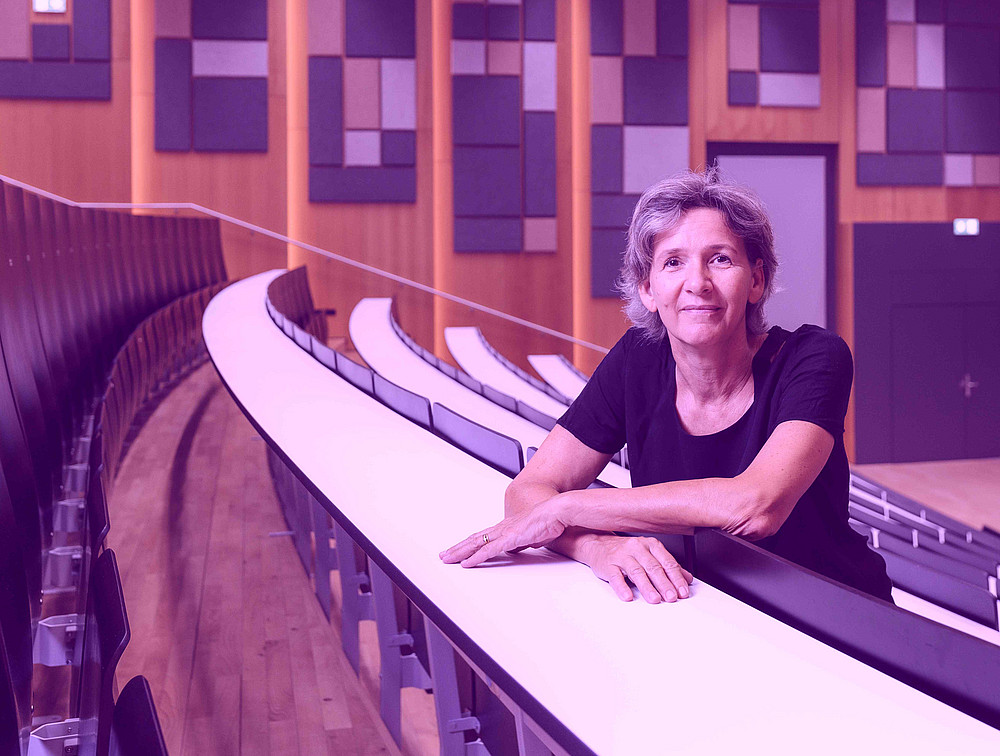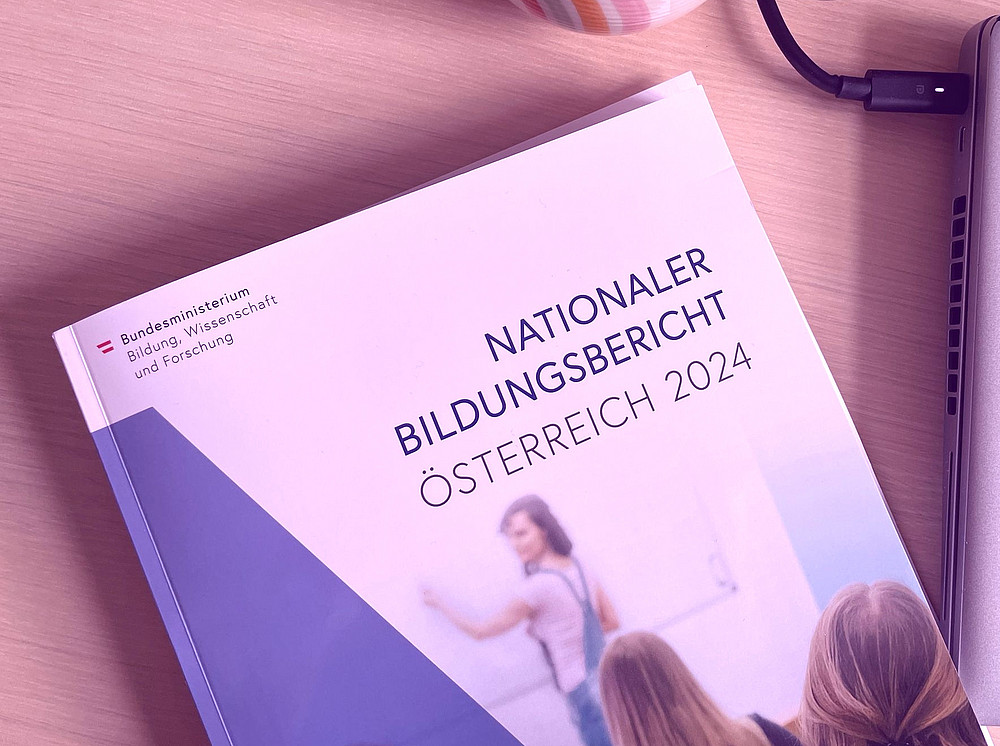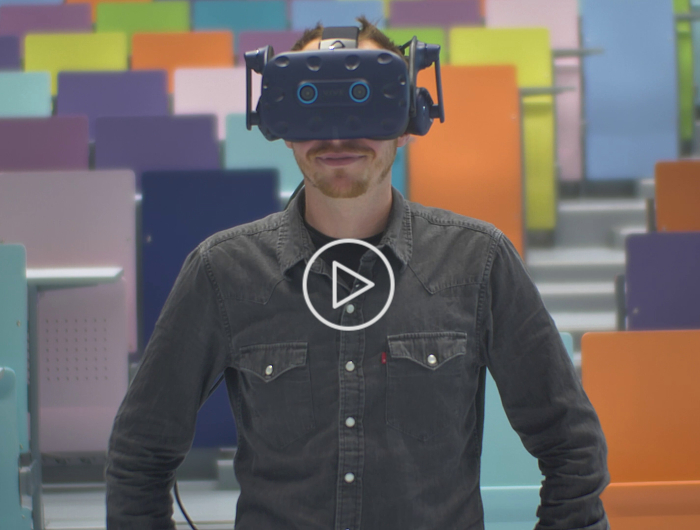Digital technologies accompany us
... in our living and learning worlds. They change the way we look at society, and a changed society has an impact on technological developments. It is important to observe these interactions in order to anticipate future developments and to be prepared for possible futures. Digitization and digitalization ultimately lead to digital transformation processes that, due to their complexity, must be subjected to a well-founded, evidence-based examination and raise new questions: How will humans and machines work together in the future and what does this collaboration mean for the education system? How does artificial intelligence change teaching and learning processes? What are the consequences of media convergence phenomena and how should these phenomena be taken into account in the education system? What competencies do lifelong learners need when dealing with digital technologies?
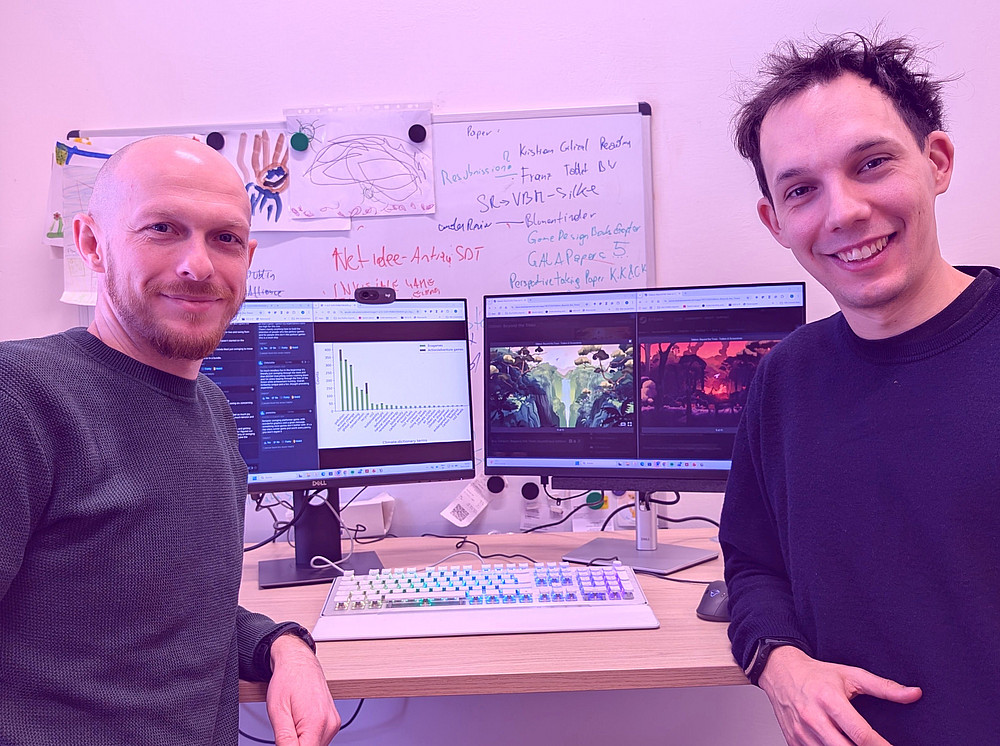
New method for identifying "ecogames"
Moritz Edlinger and Manuel Ninaus from the Educational Technologies Cluster used AI and large language models to find the proverbial needles in the haystack from a huge dataset of online game ratings. In their latest paper, they present the new method.
Continue to article: "New method for identifying 'ecogames'"
"Technology doesn't just change how we learn - it changes what learning means."
After 27 years of international research, Kathrin Otrel-Cass brings a unique perspective to the Austrian educational landscape as a university professor at the Institute for Educational Research and Teacher Education at the University of Graz. As a member of the educational technology cluster at FUTURE EDUCATION, she combines her expertise in techno-anthropology with innovative educational research.
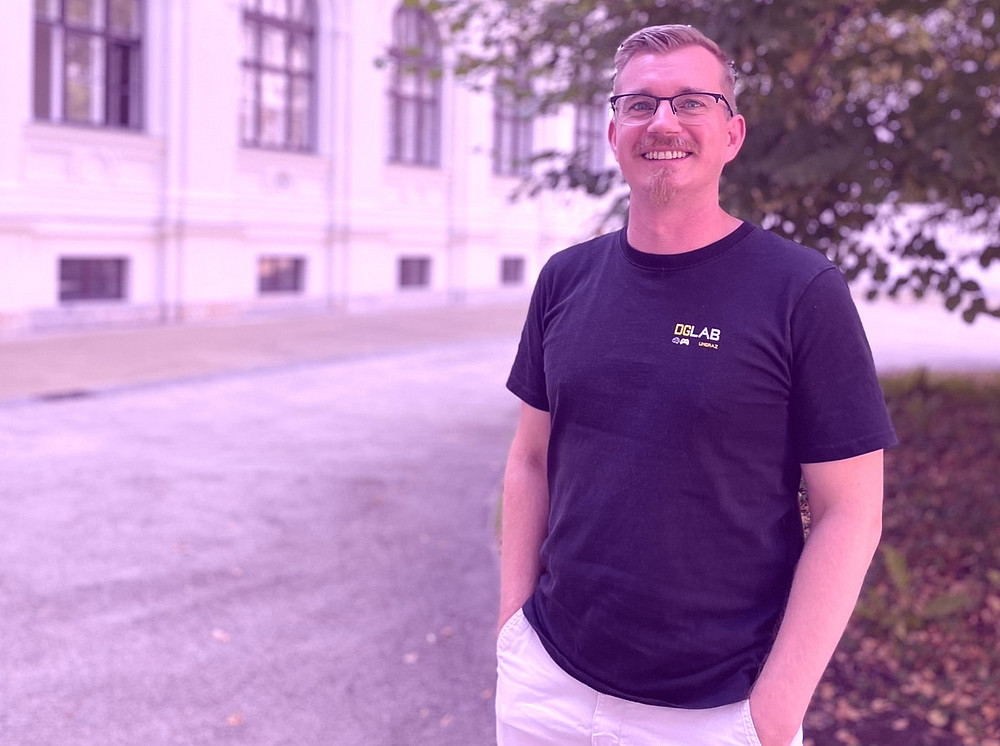
"Games will play a decisive role in the future of education"
A year ago, Stefan E. Huber was honoured with the first FUTURE EDUCATION Award. Since then, he has remained true to the research focus for which he was honoured - playful learning. On the occasion of EARLI 2025, he has now changed sides - and is presenting one of four awards to this year's winner. At FUTURE EDUCATION, Stefan E. Huber is a member of the Education Technology(s) Cluster.
Study shows: Eco video game can increase players' environmental awareness
Video games with appropriate content are able to sensitise players to climate protection issues, as initial evaluations of a study by Manuel Ninaus and Moritz Edlinger at the University of Graz show. The behaviour of the test subjects also changed: they donated more than 2,000 euros of their expense allowance to NGOs.
Read the article "Study shows: eco-video game can increase environmental awareness among players"


Elke Höfler as a guest on the podcast "Erklär mir die Welt"
"ChatGPT, what else should we learn?" asks Andreas Sator in episode 340 of his podcast "Explain the world to me". Elke Höfler, spokesperson for the Education Technology(s) Cluster, gives him the answers.
National Education Report 2024 contains contribution by Elke Höfler and Manuel Ninaus
A scientific article by Elke Höfler, Education Technologies Cluster Spokesperson, and Manuel Ninaus, Education Technologies Cluster Spokesperson, was recently published in the National Education Report Austria 2024. The article is entitled "Artificial intelligence in education: A localisation".
Christina Krause: "You have to bake the students good bread so that they get a taste for maths"
Assistant Professor Christina Krause actually wanted to become a teacher. Now she teaches prospective maths teachers at the University of Graz and teaches them how to make maths appealing to students. She is involved in three clusters in the FUTURE EDUCATION programme: Educational Technology(s), MINT+ and Plurality and Diversity.
BI2D - Educational Technologies - Why are interdisciplinarity, innovation and disruption particularly relevant for our research cluster?
Our BI2D research cluster believes that the future of education lies in the interplay of interdisciplinarity, innovation and disruption. We bring together experts from different fields to explore innovative-disruptive educational technologies and teaching and learning scenarios.
Interdisciplinary collaboration enables us to understand the challenges and opportunities of education on a global scale. Visions drive us to create innovative solutions. Through disruption, we are actively shaping the future of education.
Our goal is to research educational technologies and develop (didactic) scenarios that change the face of education and make it more accessible and effective for everyone. Explore the future of education with us!
Interdisciplinarity plays a key role in educational technology research, as it allows different disciplines and perspectives to be brought together to develop holistic solutions to complex and emerging educational challenges. The integration of computer science, pedagogy, psychology, media didactics, informatics, ethics and sociology enables us to better understand the needs of learners and teachers.
Through interdisciplinary collaboration, we can develop innovative scenarios (didactically) and research disruptive technologies that respond more effectively to individual learning styles and needs. The result is customised teaching and learning methods that improve learning outcomes.
Furthermore, interdisciplinarity promotes the critical exchange of ideas and the transfer of knowledge between different topics and research areas. This allows research groups within the cluster and beyond to identify more effective solutions that can permanently change the world of education.
Overall, interdisciplinarity in educational technology research enables a holistic and forward-looking approach that contributes to making education more effective, accessible and efficient.
Our research cluster is dedicated to researching and promoting innovation in educational technology in particular and in education in general. We firmly believe that innovative technologies have the potential to revolutionise educational traditions and make learning and teaching more effective and accessible.
Our interdisciplinary research includes the development and evaluation of new teaching and learning methods, the integration of artificial intelligence and augmented or virtual reality into educational processes, the design of open and inclusive digital teaching and learning materials and the analysis of large data sets in the field of education. In this context, we attach great importance to the practical aspect of our research in order to achieve a real impact on teachers and students.
Our vision is to research educational technologies and develop (didactic) scenarios that meet the challenges of modern education and fully utilise the possibilities of the digital age.
Disruptive educational technology refers to revolutionary changes and advances that fundamentally change traditional educational models and practices. It is about finding new ways of learning and teaching that utilise the opportunities of the digital age. Ultimately, it is about rethinking and reshaping the future of education.
Working on disruptive topics is crucial in the context of educational technologies. New and latest technologies such as Massive Open Online Courses (MOOCs), adaptive learning systems and augmented and virtual realities in the classroom can make education more accessible, effective and personalised worldwide.
Our research and interest aims to promote the development and integration of disruptive educational technologies and to develop didactic scenarios to steer education in a future-oriented direction. This requires not only innovation, but also interdisciplinarity, as we bring together experts from different fields in our cluster to develop holistic solutions.
Through our research, we are helping to shape the educational landscape of the future and create accessible and effective education for all. We also invite other interested parties to join us on this exciting journey into the future of education technology.
Video
You want to know why digital technologies are a future topic of education?
The researchers of the cluster give their answers to this question.
Gaming for science: researchers from the University of Graz at Austria's biggest LAN party
The Digital Psychology Lab was represented together with the Neuropsychology & Neuroimaging department at the VulkanLAN 2023 expo in the Graz exhibition hall.
Cluster spokespersons

Ass.-Prof. Mag. Dr.rer.nat. Manuel Ninaus

